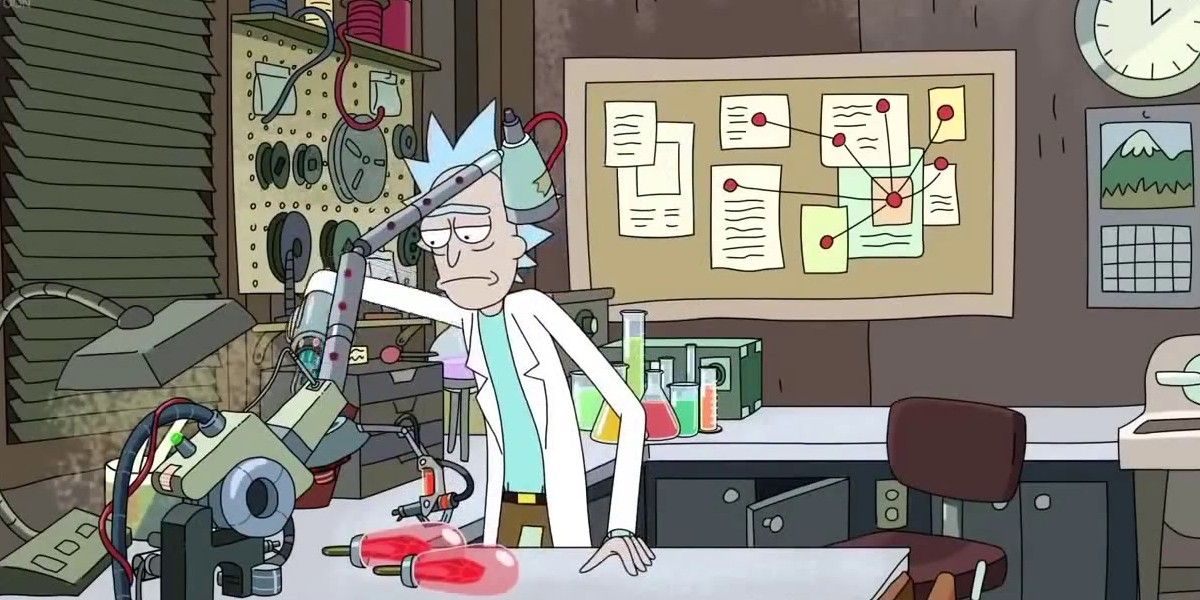
Animated television was originally designed for children with the first animated program being the 1940s black-and-white series Crusader Rabbit. While at the time, there was limited access and knowledge of animation, the series launched an introduction to the animated television-style. What followed was the popularization of similar series like the original Mickey Mouse television show, which premiered in 1955. The 60s changed the scene with shows like The Flintstones and The Jetsons. And then, thirty years later, there came an expansion of the genre with The Simpsons, the first animated show to premiere without a laugh track, and the popularization of adult animation.
Many people enjoy animated television for escapism. For children, these series help them foster a strong sense of imagination while also providing an educational imprint; whether it’s learning lessons of kindness from the sweet little bunnies on Max and Ruby, or an introduction to the Spanish language in Dora the Explorer, or even beginner’s music literacy through Little Einsteins. For adults, it balances these tropes of escapism and life lessons, but couples it with adult themes and unspeakable situations that can only be palatable and imagined through animation— it also evokes a sense of nostalgia for those who grew up on animation. Along with all the laughs, though, there are plenty of heartbreaking moments in popular animated programs, ones that could bring any audience to tears.
Related: Bob's Burgers Christmas Episodes Are Better Than Any Other Animated Show
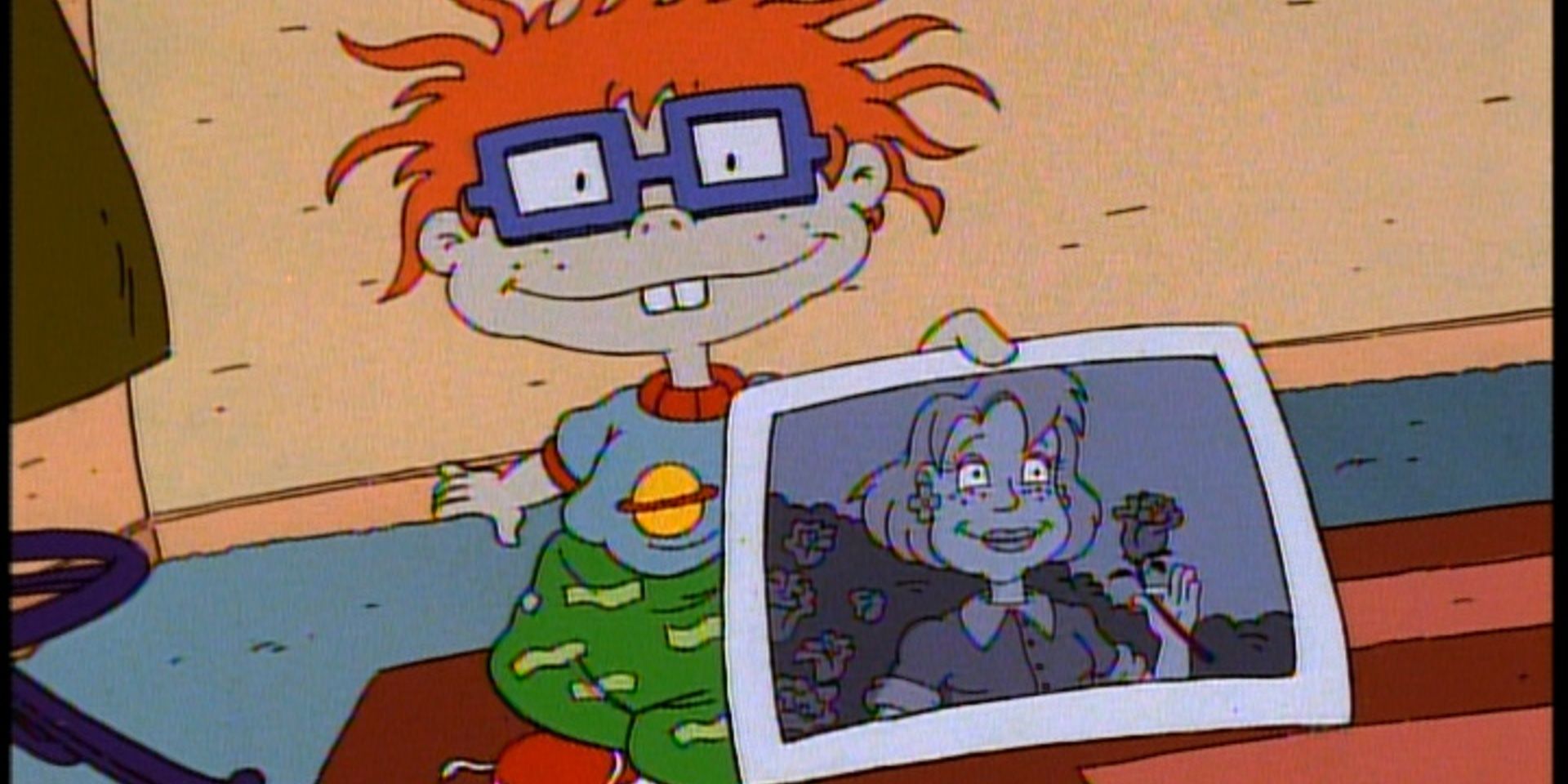
The Nickelodeon animated series Rugrats follows a group of adventurous toddlers and their parents throughout their daily lives. The show has a long-lasting legacy and is often credited towards the rising popularity of the Nickelodeon network in the early 90s. This season four episode of Rugrats hones in on Chuckie Finster, the notoriously sensitive toddler, and the absence of his mom.
"Mother's Day" follows the group of toddlers scavenging around in a search to find the perfect Mother’s Day gift before being distracted by the fact that Chuckie apparently “doesn’t have a mom.” It is revealed to the audience that Chuckie’s mom has passed and his dad, Chas, has been frantically hiding her belongings in an attempt to protect his son— to keep him away from the pain of missing her.
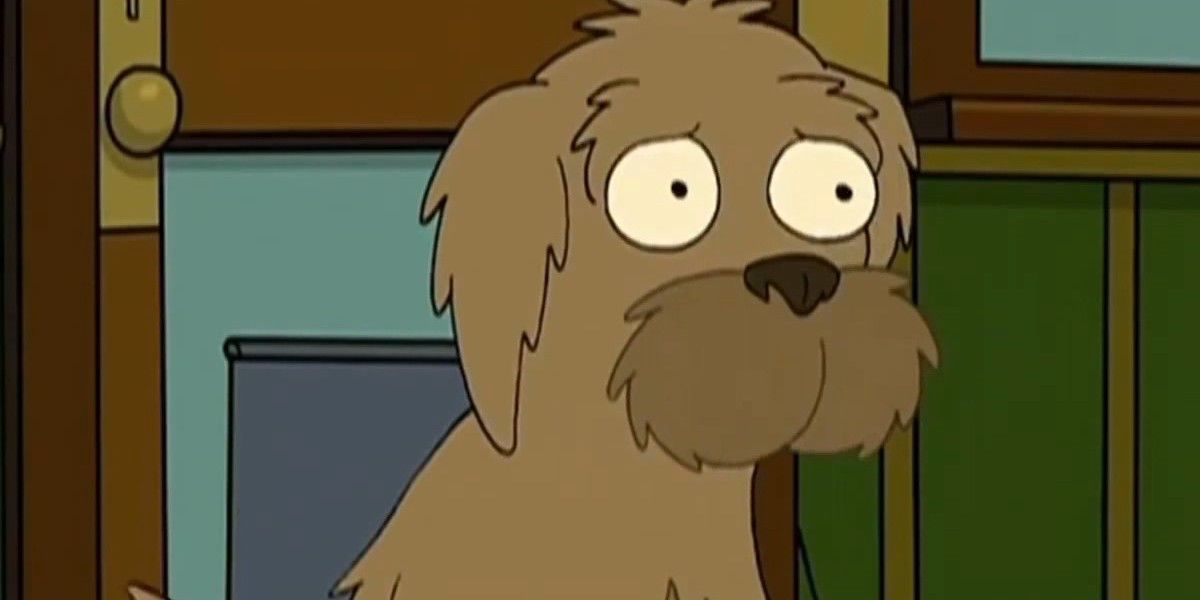
Created by Matt Groening, Futurama is a science-fiction animated series that follows around a distant group of characters— including a mad scientist, a robot, and a single-eyed mutant, among others — who struggle to assimilate into the technological age of the 31st century. The heartwrenching episode “Jurassic Bark” follows the show’s “man out of time” protagonist Phillip J. Fry who discovers that the remains of his pet dog, from his pre-cryogenic days, is being kept by a nearby museum.
Throughout the episode, Fry is presented with a social dilemma: to “Pet Sematary'' his old pet or not (his elderly nephew is the resident mad scientist and has the cloning technology prepared). After deciding against it, under the notion that his dog lived a long and fulfilling life after Fry’s departure, the audience is shown a montage of the dog’s owner-less life which was less than ideal. It’s the type of episode that makes people hold their pets tighter.
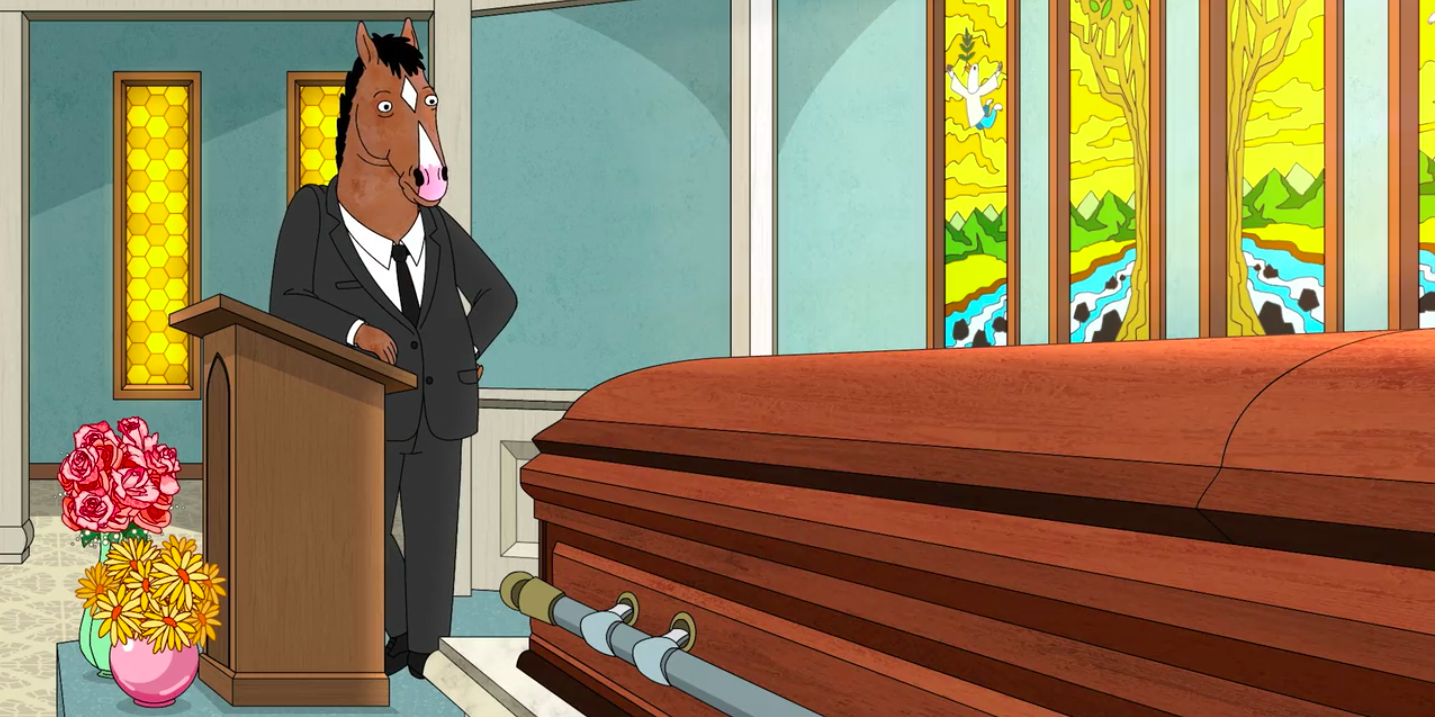
Although BoJack Horseman is an animated dark comedy filled to the brim with depressing moments, “Free Churro” is a standout episode. The show is one of the newest ones on this list, it premiered in 2014 on Netflix and stars the Arrested Development alum Will Arnett as the titular character.
In this episode, BoJack Horseman is delivering the eulogy at his mom’s funeral. The episode begins with a flashback into BoJack’s childhood where his parent’s neglectful and abusive behavior is amplified, something that has already been revealed to the audience throughout the series and often ties back towards his self-deprecating sense of humor and alcoholism.
Throughout his bleak speech, the audience is carried through his time spent with his mom at the ICU, his trip to Jack in the Box prior to coming to the funeral, and other related events. After telling a fictionalized mother-son story — “That's the kind of story I want to tell about my parents when they die” — he begins to talk about a final moment he had with his mom, recalling her staring out into the distance and telling him, “I see you.” While he harps on this moment and transitions it into the rest of his eulogy, he comes to the realization that his mom wasn’t saying “I see you” but rather she was reading the hospital sign which read “ICU,” as in intensive care unit.
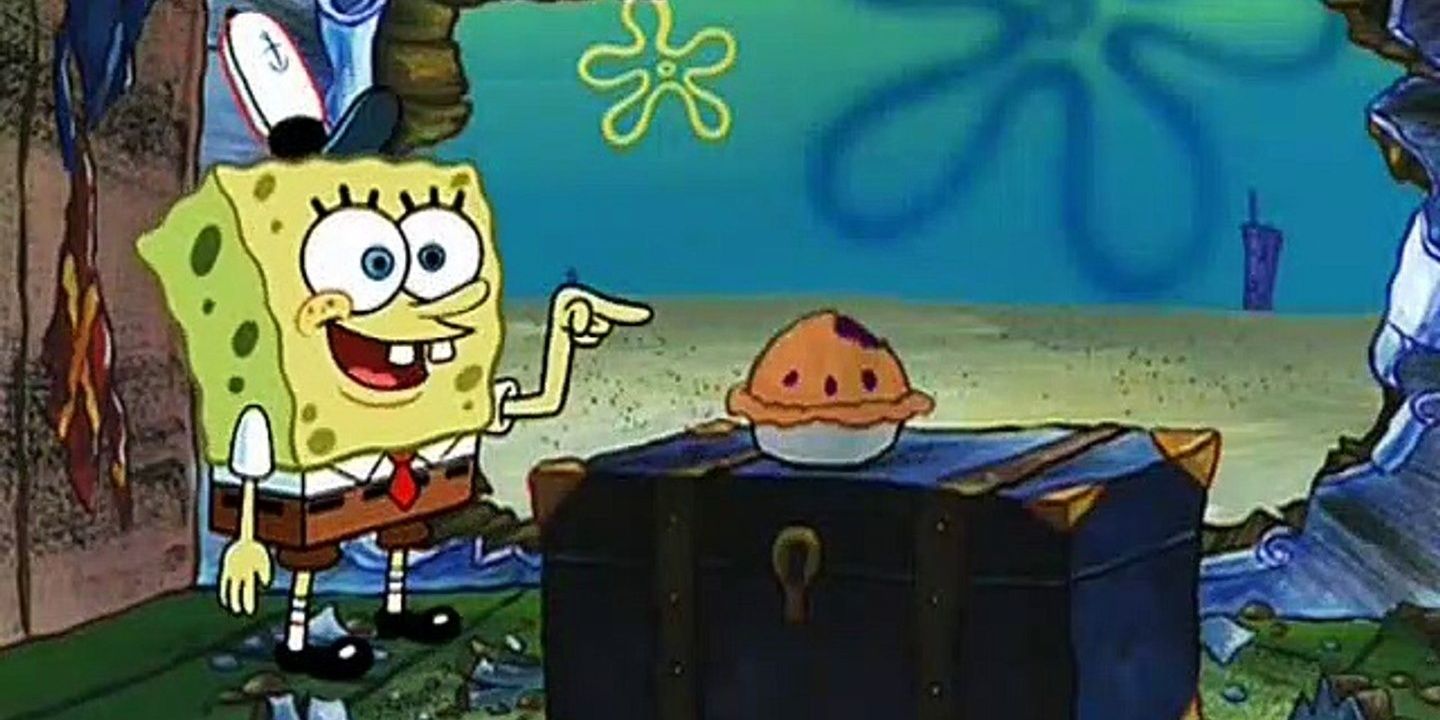
The highest-rated Nickelodeon series Spongebob Squarepants follows a group of underwater pals as they adventure through the Bikini Bottom, a “slice of life” animated comedy geared towards children. In “Dying for Pie,” the titular character and ever-optimistic sea sponge eats a pie that he found in his boss’ office. The pie was brought by his grumpy neighbor and coworker Squidward to begrudgingly celebrate Employee Brotherhood Day.
Squidward and Mr. Krabs discover that the pie is explosive and in their trek to remove it from the Krusty Krab restaurant they find it already gone, having been devoured by Spongebob. Throughout this episode, the two imagine Spongebob’s explosive death and Squidward is bogged down by the realization that he has “killed” his happy coworker. In order to live with himself, Squidward spends the episode abiding by all of Spongebob’s last wishes— counting down the hours to his expected death. While the episode is still packed with childish goodness and hefty laughter, it does explore some dark themes and burns the image of Spongebob dying a violent death into everybody’s minds.
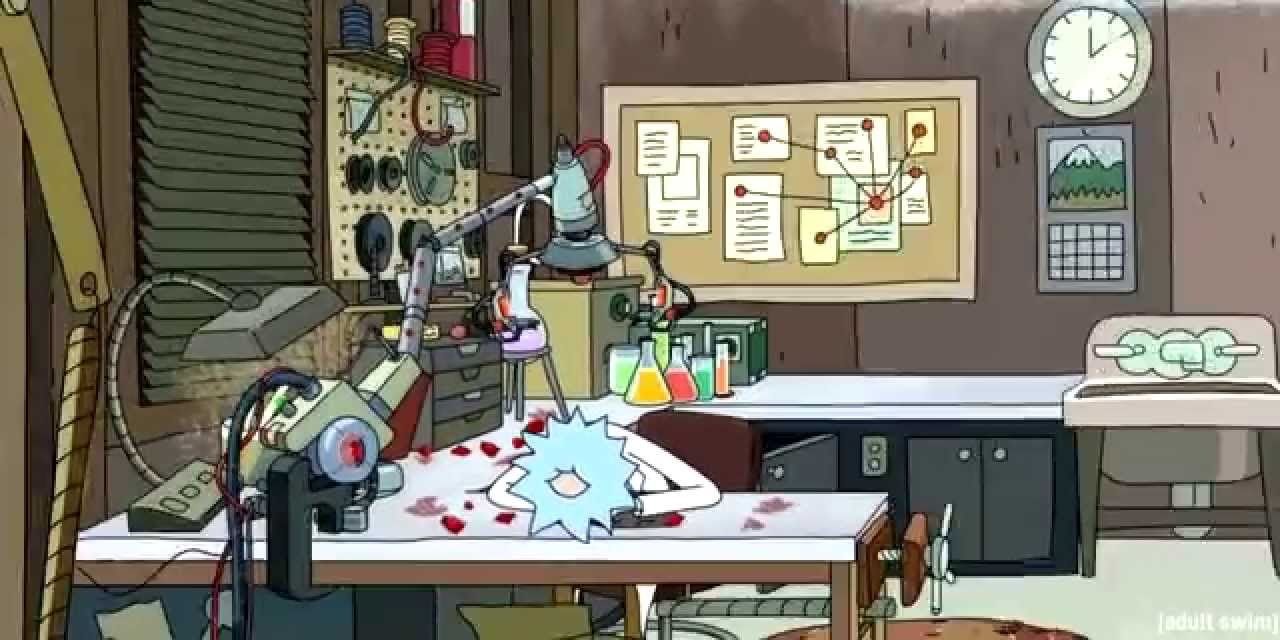
Similar to BoJack Horseman, Rick and Morty is well-known for their exploration of gloomy themes. Premiering in 2013 on Adult Swim, this show follows the weird adventures of textbook-definition mad scientist Rick and his grandson Morty, a skeptical and hesitant teenager.
“Auto Erotic Assimilation” follows the show's standard episodic pattern — the two embark on an absurd adventure, things go wrong and Rick either makes a heartfelt sacrifice to guarantee his family’s safety or he acts selfishly, leaving them to their own devices. After Rick’s failed attempt to rekindle with an old love, he returns back home to the mundaneness of everyday life.
This episode, like many, manages to go from side-splitting comedy and chaos to disheartening as it ends with a scene of Rick working in his garage lab near-missing a suicidal attempt after passing out from alcohol consumption. It was a harrowing moment for him and an uncharacteristic display of emotion and fragility, one that was never addressed in later episodes.

